Mapping Racespace: Data Stories as a Tool for Environmental and Spatial Justice
by Emily Reigh, Meg Escudé, Michael Bakal, Edward Rivero, Xinyu Wei, Collette Roberto, Damaris Hernández, Amber Yada, Kris Gutiérrez, and Michelle Hoda Wilkerson
s access to data rapidly increases, educators are being asked to use data in new ways. Recent anti- racist movements have highlighted the role that data can play in upholding, but also exposing and dismantling systems of oppression (Gillborn, Warmington, & Demack, 2018; Philip, Olivares, & Rocha, 2016). It is particularly important to note these tensions and possibilities in domains where data is often taken for granted, such as Science, Technology, Engineering, and Mathematics (STEM) contexts (Lee, Wilkerson, & Lanouette, 2021). Our research group develops STEM curricula that explore data, with a focus on socio-scientific issues.
In this essay, we share our experiences of leading a middle school data science workshop on the topic of environmental racism (ER), in particular, the disproportionate burden of pollution on communities of Color. During the workshop, youth explored case studies of local and global data-based environmental advocacy, analyzed datasets that we provided, conducted journalistic research, and created maps and other data visualizations. Our goal was to provide opportunities for youth to recognize the strengths and limitations of data, identify environmental inequities, and advocate for social change.
We planned to implement the curriculum in Oakland with middle school-aged youth, including those from the Black and Latine1 communities who have been impacted by ER. To inform the design, our team—which is composed White, Latine, and Asian researchers—reflected on our own experiences of injustice and privilege and engaged with local environmental justice activists of Color. The curriculum introduces ER through a set of global case studies, then presents a detailed anchor case about the Black community in West Oakland, highlighting historical segregation and divestment as well as successful advocacy efforts of community members. Finally, participants researched a question of their choosing, in the Bay Area or beyond.
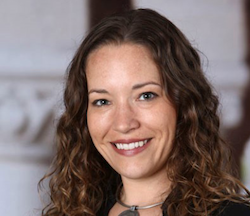 Emily Reigh is a postdoctoral researcher on the Writing Data Stories project at the University of California, Berkeley and an instructor in the Berkeley Teacher Education Program. Her research focuses on designing science learning environments that engage and sustain the cultural and linguistic practices of students from minoritized communities. Before embarking on her graduate studies, she spent a decade teaching science in a public high school in Oklahoma and an international high school in Cairo, Egypt.
Emily Reigh is a postdoctoral researcher on the Writing Data Stories project at the University of California, Berkeley and an instructor in the Berkeley Teacher Education Program. Her research focuses on designing science learning environments that engage and sustain the cultural and linguistic practices of students from minoritized communities. Before embarking on her graduate studies, she spent a decade teaching science in a public high school in Oklahoma and an international high school in Cairo, Egypt.
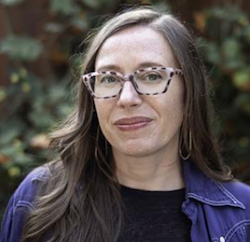 Meg Escudé is a PhD student at the University of California, Berkeley who takes a critical approach to the learning sciences. Her research engages community-based after school educators in the co-development of liberatory learning experiences for young people. Meg has over 12 years of experience as an educator and program director in which she worked to create out-of- school learning environments that honor the diverse ways in which non- dominant children and youth express their brilliance, particularly in work that intersects STEM, cultural practice, and art.
Meg Escudé is a PhD student at the University of California, Berkeley who takes a critical approach to the learning sciences. Her research engages community-based after school educators in the co-development of liberatory learning experiences for young people. Meg has over 12 years of experience as an educator and program director in which she worked to create out-of- school learning environments that honor the diverse ways in which non- dominant children and youth express their brilliance, particularly in work that intersects STEM, cultural practice, and art.
 Michael Bakal is PhD candidate at the University of California, Berkeley Graduate School of Education, where he co-designs and studies youth participation in environmental justice programs. A former high school biology teacher and media advocacy trainer, Michael has worked since 2009 with the community-based organization Voces y Manos in Maya-Achí territory in Guatemala. Working with that organization, his dissertation is focused on youth engagement in agroecology programs as a response to the climate crisis.
Michael Bakal is PhD candidate at the University of California, Berkeley Graduate School of Education, where he co-designs and studies youth participation in environmental justice programs. A former high school biology teacher and media advocacy trainer, Michael has worked since 2009 with the community-based organization Voces y Manos in Maya-Achí territory in Guatemala. Working with that organization, his dissertation is focused on youth engagement in agroecology programs as a response to the climate crisis.
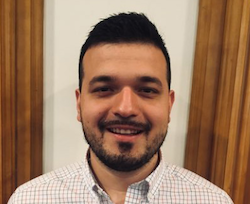 Edward Rivero is a research associate at the John Gardner Center for Youth and Their Communities at Stanford University. Eddie’s dissertation examined youth of Color’s play as a critical site of inquiry for understanding how digital technologies can be leveraged to design for relational equity. As a postdoctoral fellow at the Learning Policy Institute, Eddie continued his studies on the role that relationships play in the learning and development of young people through his research on the Relationship-Centered School campaign in California. Eddie’s research employs critical approaches to co-designing equitable learning ecologies with students, teachers, and community organizations.
Edward Rivero is a research associate at the John Gardner Center for Youth and Their Communities at Stanford University. Eddie’s dissertation examined youth of Color’s play as a critical site of inquiry for understanding how digital technologies can be leveraged to design for relational equity. As a postdoctoral fellow at the Learning Policy Institute, Eddie continued his studies on the role that relationships play in the learning and development of young people through his research on the Relationship-Centered School campaign in California. Eddie’s research employs critical approaches to co-designing equitable learning ecologies with students, teachers, and community organizations.
 Xinyu Wei is a master’s student at the University of California, Berkeley studying learning sciences. An international scholar from China, she is passionate about making STEM education more accessible for students from socioeconomically minoritized communities and helping students interpret the real-world meaning of knowledge like mathematicians and scientists do. Xinyu desires to scaffold students to position their cultural practices and interests as grounds for expansive learning. She also focuses on examining the affordances of task-based interviews to mathematize students’ in- and out-of-school experiences during formative assessments.
Xinyu Wei is a master’s student at the University of California, Berkeley studying learning sciences. An international scholar from China, she is passionate about making STEM education more accessible for students from socioeconomically minoritized communities and helping students interpret the real-world meaning of knowledge like mathematicians and scientists do. Xinyu desires to scaffold students to position their cultural practices and interests as grounds for expansive learning. She also focuses on examining the affordances of task-based interviews to mathematize students’ in- and out-of-school experiences during formative assessments.
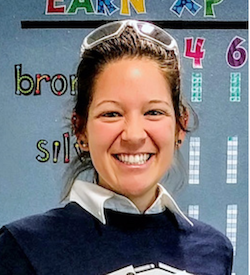 Collette Roberto is a PhD student at the University of California, Berkeley working at the intersection of computer science (CS) education and learning sciences (LS). Collette is interested in the design of new approaches to CS Education that reject the notion that science is neutral and objective. The design of such approaches requires that we take a meaningful stake in the communities we serve, and similarly rejects the notion of researchers as unbiased observers. Instead, Collette believes that the way forward is to engage in co-design with students and teachers for new CS learning experiences.
Collette Roberto is a PhD student at the University of California, Berkeley working at the intersection of computer science (CS) education and learning sciences (LS). Collette is interested in the design of new approaches to CS Education that reject the notion that science is neutral and objective. The design of such approaches requires that we take a meaningful stake in the communities we serve, and similarly rejects the notion of researchers as unbiased observers. Instead, Collette believes that the way forward is to engage in co-design with students and teachers for new CS learning experiences.
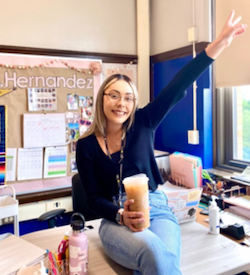 Damaris Hernández is a middle math teacher in Chicago and a graduate student at Relay School of Education through Teach for America. As an undergraduate at the University of California, Berkeley, her interdisciplinary program of study addressed the issue of inequitable access to quality math education for students from nondominant communities. Her research focuses on rehumanizing mathematics classrooms and centering student voices and stories through culturally sustaining curriculum. As a first generation Latina, she hopes to inspire her students to see themselves as mathematicians and to use math to learn about their community and make the world a better place.
Damaris Hernández is a middle math teacher in Chicago and a graduate student at Relay School of Education through Teach for America. As an undergraduate at the University of California, Berkeley, her interdisciplinary program of study addressed the issue of inequitable access to quality math education for students from nondominant communities. Her research focuses on rehumanizing mathematics classrooms and centering student voices and stories through culturally sustaining curriculum. As a first generation Latina, she hopes to inspire her students to see themselves as mathematicians and to use math to learn about their community and make the world a better place.
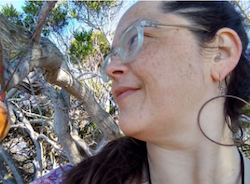 Amber Yada is an American studies major and education minor at the University of California, Berkeley. She is pursuing an interdisciplinary undergraduate degree with a focus on race, media, and education that explores questions of identity, representation, and learning. She is also an animator who nerds out over animated shorts with counter-hegemonic narratives.
Amber Yada is an American studies major and education minor at the University of California, Berkeley. She is pursuing an interdisciplinary undergraduate degree with a focus on race, media, and education that explores questions of identity, representation, and learning. She is also an animator who nerds out over animated shorts with counter-hegemonic narratives.
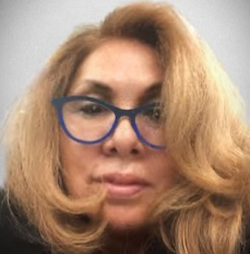 Kris Gutiérrez is associate dean of the School of Education and the Carol Liu Professor of Education at the University of California, Berkeley. She holds expertise in the learning sciences, literacy, educational policy, and qualitative and design-based approaches to inquiry. Gutiérrez’s research employs a critical approach to the Learning Sciences and to Cultural Historical Activity Theory, examining the cultural dimensions of learning in designed learning environments with attention to students and families from non-dominant and translingual communities.
Kris Gutiérrez is associate dean of the School of Education and the Carol Liu Professor of Education at the University of California, Berkeley. She holds expertise in the learning sciences, literacy, educational policy, and qualitative and design-based approaches to inquiry. Gutiérrez’s research employs a critical approach to the Learning Sciences and to Cultural Historical Activity Theory, examining the cultural dimensions of learning in designed learning environments with attention to students and families from non-dominant and translingual communities.
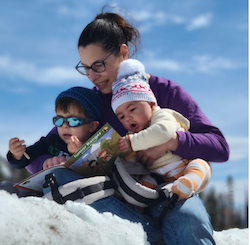 Michelle Hoda Wilkerson is an associate professor in the School of Education at the University of California, Berkeley. Her research focuses on the teaching and learning of computational literacies. This includes studying how youth learn about, use, and create computational artifacts including simulations, data visualizations, and other digital scientific media; and, exploring how teachers and students understand the role(s) these artifacts play in science, personal expression, and society.
Michelle Hoda Wilkerson is an associate professor in the School of Education at the University of California, Berkeley. Her research focuses on the teaching and learning of computational literacies. This includes studying how youth learn about, use, and create computational artifacts including simulations, data visualizations, and other digital scientific media; and, exploring how teachers and students understand the role(s) these artifacts play in science, personal expression, and society.